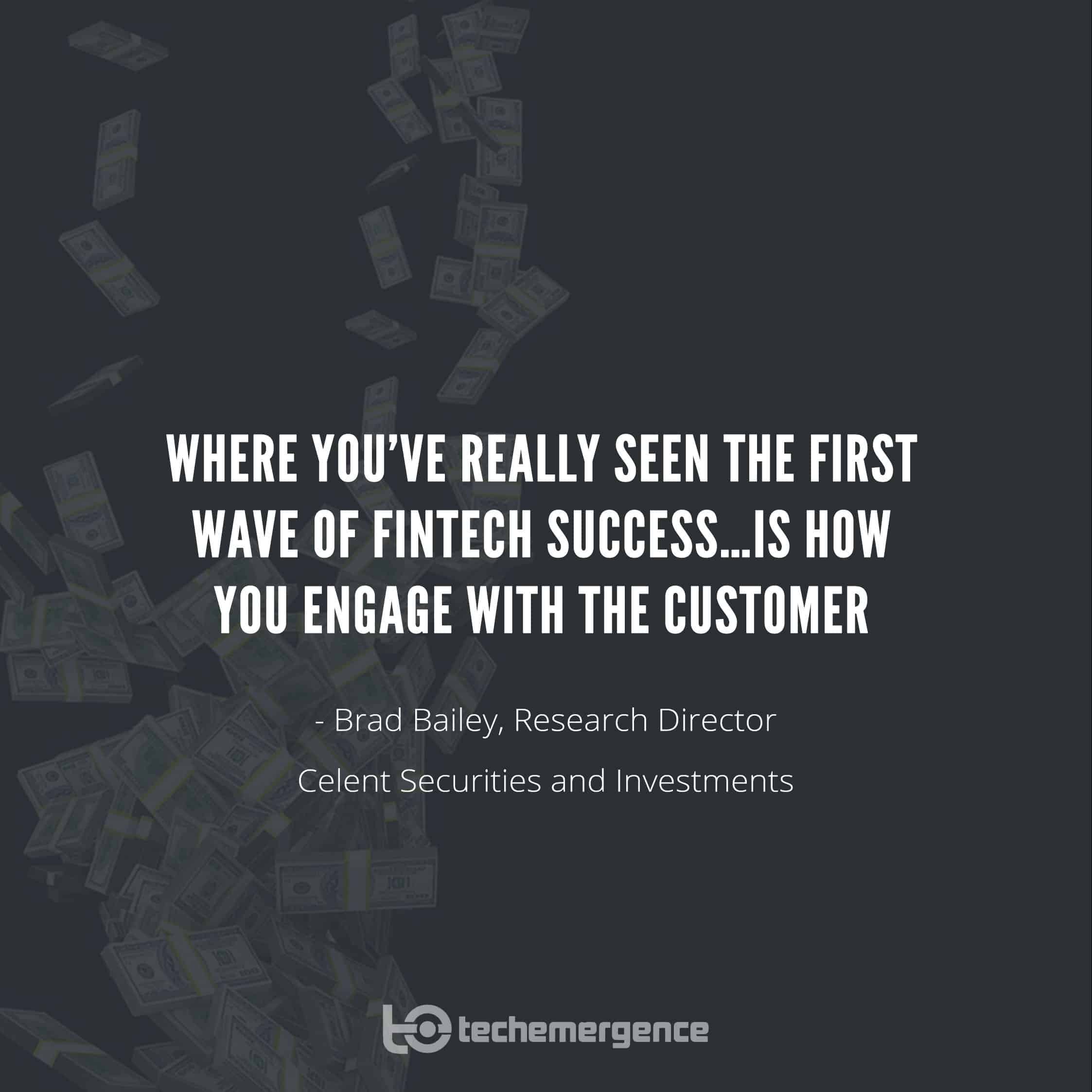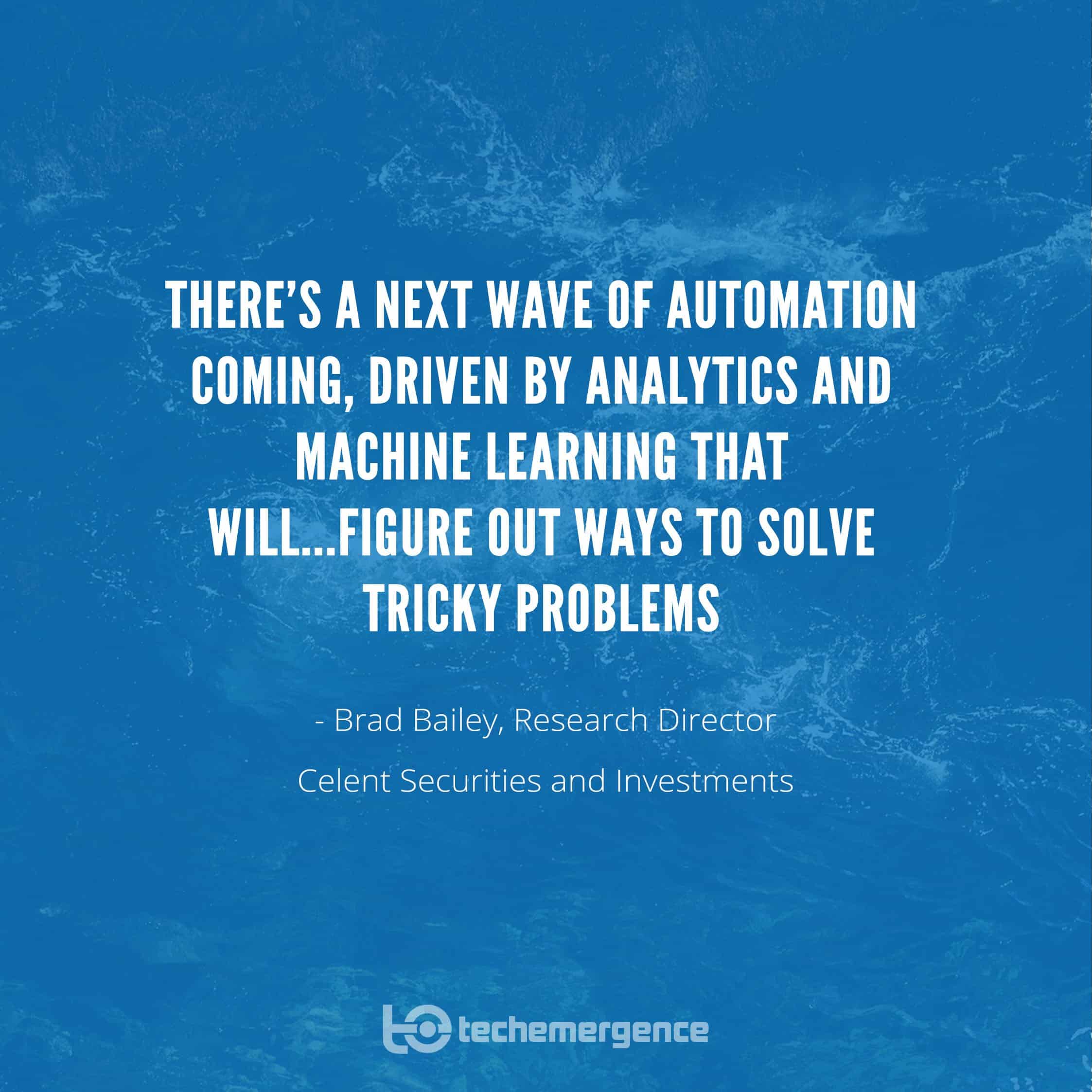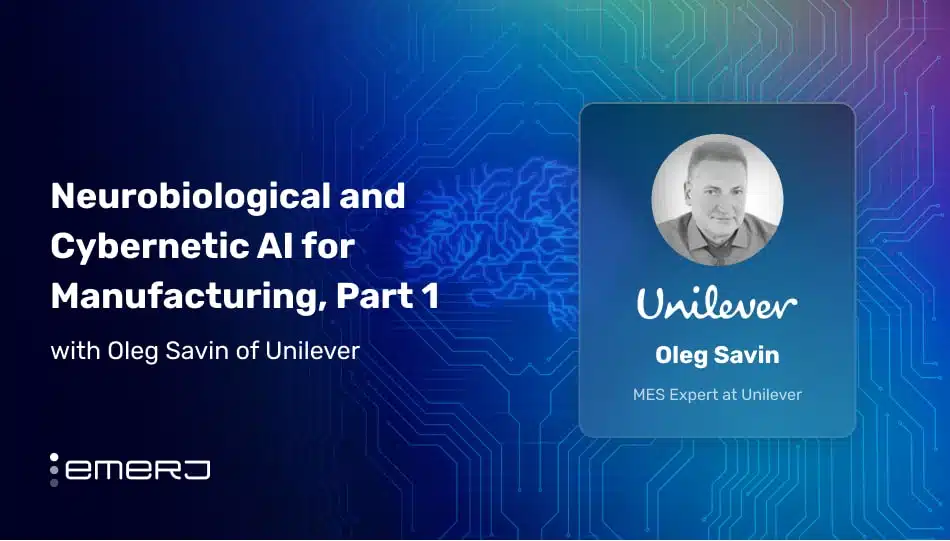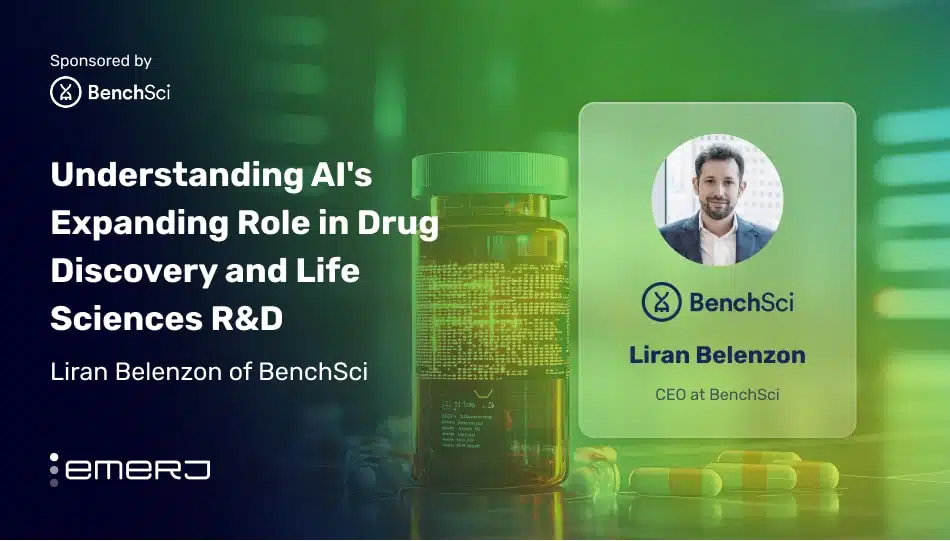Episode Summary: There are hedge funds and financial institutions that already use real-time data and sentiment analysis from social media, articles and videos in real-time to potentially make better trading decisions – but what does it mean when those same companies can use real-time satellite information to detect company activities and make trades based on that data? In this episode, Research Director of Capital Markets at Celent Securities discusses the focus on emerging technologies in trading and finance. He talks about the way that analytics and machine learning have affected the ways banks operate, the kinds of data that hedge funds and individual investors now have at their fingertips, and what that means for the future implications of AI-related technology in the finance world.
Expertise: Electronic trading of equities, foreign exchange derivatives, credit, rates, and futures
Recognition in Brief: Brad Bailey is a research director with Celent’s Securities and Investments practice, and is based in the firm’s New York office. His research focus is on emerging technology and trading technology across asset classes. Brad has more than 20 years of Wall Street industry experience in trading, technology, sales, strategy, analysis, and consulting. He is often quoted in the industry and general press, including:WSJ, Financial Times, Bloomberg Business Week, & Forbes, as well as radio and TV. Brad has an undergraduate degree in Mechanical Engineering from Rutgers University and a MS from University of Colorado, Boulder.
Current Affiliations: Research Director at Celent Securities and Investments

Interview Highlights
(2:10) In the world of algorithmic trading, I know that machines doing the trading for people a thousand times faster than humans can blink, has been going on for quite some time…that’s started to bend in machine learning direction as you were telling me, talk to us about what have you seen in shifts there, as a guy who’s at ground zero in that space?
(5:42) Are we able to say whether or not that transition has been tangibly beneficial…the guys that hire all the PhDs to integrate a Twitter stream into millisecond trading decisions, is this becoming so prevalent that it’s a clear advantage…is this still experimenting or are we seeing tangible traction with these new approaches?
(9:00) Do you see the future looking like, whether you’re a hedge fund or traditional bank, if you want to be making the most of your dollars in a day…that essentially everyone will be looking for more and mores routes of information, do we see particular sources becoming de facto…or are they all just tinkering?
(12:37) What have you seen as the trends there (with the banks), you mentioned there’s kind of an underlying panic in some of the stodgy banking world, what’s that look like, what’s that about?
(16:20) One thing you’d mentioned…how (the banks) are interacting or treating or dealing with customers, by that do you mean some of the initial areas of innovation for banks here in the AI space broadly have been in the customer service….what facets of customer service have sort of picked up since the crisis or been facilitated by the technologies we’re talking about?
(19:25) Are there any particular companies…that have maybe blipped onto your radar, whether this be folks that have been sucked up and absorbed by banks or folks that are taking advantage of regulatory loops in the finance world, what are some that are maybe decent examples of these transitions and disruptions?
























